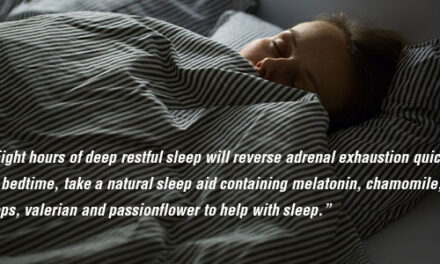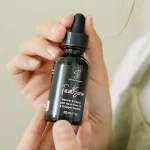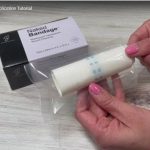Let’s talk about a rather sensitive and personal issue that many women are shy to discuss with health practitioners or even friends. It’s a problem that can affect sexual pleasure. It can lead to great vaginal discomfort such as burning and pain and may also contribute to increased risk of urinary tract infections as well as other vaginal health issues.
Vaginal Pain
We are talking about the problem of vaginal dryness, also known as vaginal atrophy. This condition is accompanied by thinning of vaginal tissue and lack of lubrication.
Even though many women may be silent about vaginal dryness and vaginal atrophy, it is by no means a rare condition. As many as 14 million women over the age of 18 have experienced this problem. In fact, nearly half of all women over the age 40 have suffered from vaginal dryness at some point in their lives. And two-thirds of women over the age of 60, list vaginal dryness as one of the top two sexual health problems along with lack of libido.
Why is this a problem?
First, without adequate lubrication, sexual intercourse becomes uncomfortable and even painful. Because vaginal dryness is often accompanied by thinning of the vaginal tissue, it can result in lesions or tears of the vaginal wall. In addition, drying out of the mucosal membranes increases the risk of incontinence, bladder infections and urinary tract infections. Lack of vaginal lubrication can also make women vulnerable to contracting a vaginal infection called bacterial vaginosis.
The most common signs and symptoms of vaginal dryness include irritation and pain during sex, itching and stinging around the vaginal opening and in the lower third of the vagina and urinary tract infections. Another symptom is the occurrence of bleeding or spotting during sex or other times as a result of the thinning of vaginal tissue.
What is Going On?
Vaginal lubrication consists of clear fluid that seeps through the walls of the blood vessels encircling the vagina. When you’re sexually aroused, more blood flows to your pelvic organs, creating more lubricating vaginal fluid. But due to hormonal changes at perimenopause, menopause, childbirth, and even breast-feeding, this natural physiological process may be altered. Healthy vaginal walls are always coated in a thin layer of this moisture and mucus. Without adequate lubrication, vaginal tissues become dry, thin and prone to tearing.
Changes in vaginal moisture also occur in response to low estrogen levels. Estrogen is essential in keeping vaginal tissue supple and elastic. Adequate estrogen levels give the tissue its ability to produce slippery-smooth lubrication. Anytime a woman’s estrogen level is altered, for whatever reason including a hysterectomy or impaired ovarian function, vaginal thinning and dryness may occur.
Perimenopause and menopause are stages in a woman’s life cycle when estrogen levels may be fluctuating. Estrogen production can also be affected after childbirth and during breast-feeding.
There are many issues can alter the normal production of moisture. For instance, stressful situations, whether physical or emotional, constrict blood vessels that supply nutrients and oxygen to the vaginal tissue. Maintaining healthy vaginal secretions and vaginal elasticity requires adequate key nutrients such as essential fatty acids, vitamins A, C, and B.
Many medications have side effects that can directly alter vaginal secretions. They include steroid/cortisone drugs, cancer treatments, tamoxifen, aromatase-inhibitors, antihistamines, antidepressants, as well as ulcer and high blood pressure medications.
One little known side effect of oral contraceptives is reduced vaginal lubrication. The alteration of natural hormone production from taking the Pill has many consequences. Lack of healthy vaginal moisture can be one of them.
Commercial Lubricants-A Bad Idea
Many women turn to commercial lubricants when they become aware they are dealing with vaginal dryness. But beware! The chemicals used in them can irritate the delicate vagina tissue. Potential ingredients include fragrances, the antibacterial agent chlorhexidine, propylene glycol, glycerin, and a group of preservatives called parabens, (often listed as methyl-, butyl-, ethyl- and propyl-paraben). Some lubricants such as K-Y Jelly and Replens can alter the pH balance of the vagina, which would increase the risk of certain vaginal infections.
Beware of Vaginal Estrogen Creams
Since it is the hormone estrogen that causes the vagina to thicken and moisten, the medical approach is to prescribe an estrogen vaginal cream. However, when estrogen is applied in the vagina, it can be quickly absorbed into the blood stream and transported to other tissues. In fact, both vaginal applications of Premarin and Estrace raise your blood levels of estrogen much the same as estrogen pills.
Long-term exposure to high levels of estrogen can pose some risk to women diagnosed with breast cancer or at high risk of breast cancer by potentially elevating estrogen levels excessively. Doctors, therefore, discourage the use of these estrogens if a woman has a breast cancer risk.
Estriol is another form of estrogen that is often prescribed to women. While considered a safer form of estrogen, it still requires a doctor’s prescription and is expensive.
Hygeena – The Ultimate Vaginal Healing and Rejuvenation Formula
When it comes to healing delicate vaginal tissue and restoring healthy lubrication, it is vitally important to choose a natural, organic product. You especially want to use one that is specifically formulated to effectively and safely resolve the problem of dryness, thinning vaginal tissue, lack of lubrication, and risk of fungal or bacterial infections.
Hygeena, the first all-natural, hormone free and comprehensive formula, not only heals but also restores healthy vaginal tissues, lubrication, and imbalances. It is the best solution for providing overall vaginal rejuvenation.
Hygeena has been carefully formulated with a unique synergy of six all natural, organic and non-toxic ingredients that have been proven to heal, repair, lubricate and rejuvenate vaginal tissue as well as restore a healthy vaginal environment. And the best part is, it is easily administered as a vaginal suppository!
Pueraria Mirifica — Pueraria mirifica is a plant that grows in Thailand and other parts of Southeast Asia. For over 100 years, Pueraria mirifica have been used in traditional Thai medicine to promote youthfulness and rejuvenation in women. It has phytoestrogen benefits on vaginal tissue, including alleviating vaginal dryness and painful urination, improving vaginal atrophy, and restores thinning, drying and inflammation of the vaginal walls. Pueraria mirifia, as a phytoestrogen, promotes estrogenic effects but without any of the health risks associated with the prescribed estrogen hormone.
Hygeena is formulated with Puresterol®, a patented extract of Pueraria mirifica.1
Hyaluronic Acid — Hyaluronic Acid (HA) is a natural compound produced in the body. It is a real superstar when it comes to rejuvenation. It has the unique ability to attract and retain more than 1000 times its weight in water. Thus, hyaluronic acid enables cells to retain moisture which keeps the tissues moist and hydrated.
As we age, HA levels diminish, and cells lose their ability to hold moisture. That translates into a loss of elasticity. HA is phenomenal at penetrating the skin’s layers where it affects tissue repair and protection while boosting elasticity and hydration. Another important feature of HA is its ability to transport nutrients from the blood directly to skin cells. All these benefits make hyaluronic acid a powerful ingredient in Hygeena to reverse vaginal dryness and revitalize vaginal tissue!
Omega 7’s (Sea Buckthorn oil) — Sea buckthorn oil has been used for thousands of years as a natural remedy against various ailments. It is extracted from the berries, leaves and seeds of the sea buckthorn plant (Hippophae rhamnoides), which is a small shrub that grows at high altitudes in the northwest Himalayan region.
Sea Buckthorn oil showed beneficial effects on vaginal health, helping to improve mucosal integrity and vaginal atrophy. A lack of essential fatty acids in the diet is a contributing factor to vaginal dryness. There is a very specific essential fatty acid derived from sea buckthorn oil that helps women to alleviate vaginal dryness.
Sea Buckthorn oil contains beta carotene, trace minerals, omega 3, 6 and 9 fatty acids and additionally is the richest source of omega 7 essential fats. Omega 7 essential fatty acids are important structural components of mucous membranes which form the protective lining of internal organs such as the vaginal, digestive and respiratory tracts, as well as the surface of the eyes and mouth. Sea Buckthorn oil not only promotes healthy regeneration of these membranes but also provides nutrients essential for the proper functioning of the membranes in the vaginal tract.
In a study conducted by The Department of Obstetrics and Gynecology in Finland, it was concluded that sea buckthorn oil was a natural and effective solution to contributing to the health of mucous membranes including vaginal dryness.2
Silver Biotics® — The patented Silver Biotics® with SilverSol Technology® is a unique and highly effective form of silver, known as nano-silver. Throughout the ages, silver has been renowned for its anti-microbial effects. SilverSol Nano-Silver Technology is the most effective form of silver ever created. It far surpasses either colloidal or ionic forms of silver for potency. It has been clinically tested and FDA approved demonstrating that it is totally safe and has no known side-effects.
Silver Biotics® liquid has been scientifically proven to quickly kill harmful bacteria, viruses, and fungus. The good news is that it will not cause antibiotic resistance or alteration of healthy vaginal microflora. In addition to its lubricating and anti-microbial effects, it is also able to quickly reduce inflammation, itching, pain and burning while at the same time accelerating tissue repair and healing. Studies have demonstrated that in just 10 minutes, it successfully killed Candida!
The broad-spectrum nature of Silver Biotics® also helps to prevent urinary tract infections that are caused by vaginal bacteria by stopping the migration into the urinary tract.
Natural Vitamin E (alpha-tocopherol) — Vitamin E oil has proven effective in relieving symptoms of combat dryness, vaginal atrophy and soothes irritation. Research suggests that the topical form of this vitamin helps skin hold on to water, a key factor not only in softness but in healthy, resilient skin.
Aloe Vera — Aloe Vera is used in the place of water as base for hydration and as an anti-inflammatory star. Its benefits are due to a combination of a very wide range of ingredients including Vitamins A and B, proteins, amino acids, good fatty acids and triglycerides. Its medicinal properties fight off bacteria, help dilate capillaries and increase blood flow, as well as helping to relieve pain and itching.
The Natural Solution for Vaginal Healing, Restoration and Rejuvenation
The healing power of nature is profound. As women journey through the many stages of life, nature has provided the solutions to support health, vitality and healing. This is also true for the changes that cause hormones to fluctuate. Vaginal dryness and tissue atrophy can occur during many stages of life, either as a transitory problem or as symptom of deeper hormonal shifts.
Hygeena truly is an elixir for vaginal health. Hygeena’s unique formula incorporating Pueraria mirifica, Hyaluronic Acid, Silver Biotics®, Sea Buckthorn Oil, Natural Vitamin E and Cocoa butter has provided some of Nature’s most healing gifts to support women to be healed, revitalized and rejuvenated throughout their lifetime.
References:
- Manonai J1, Chittacharoen A, Theppisai U, Theppisai H., Effect of Pueraria mirifica on vaginal health Menopause. 2007 Sep-Oct;14(5):919-24. DOI: 10.1097/gme.0b013e3180399486
- Larmo PS1, Yang B2, Hyssälä J3, Kallio HP2, Erkkola R4., Effects of sea buckthorn oil intake on vaginal atrophy in postmenopausal women: a randomized, double-blind, placebo-controlled study. Maturitas. 2014 Nov;79(3):316-21. DOI: 10.1016/j.maturitas.2014.07.010











